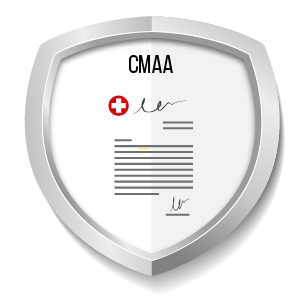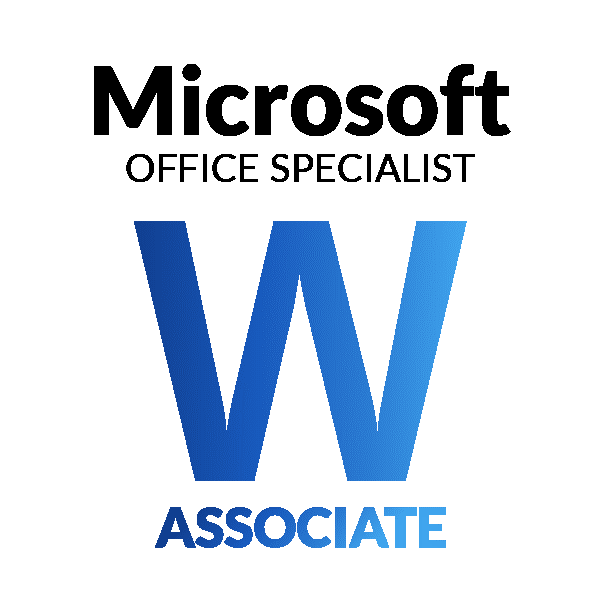
ASSOCIATE OF APPLIED SCIENCE IN HEALTHCARE MANAGEMENT
Guide the pulse of care
TRAIN FOR MANAGEMENT IN HEALTHCARE
REQUEST MORE INFO ON ASSOCIATE OF APPLIED SCIENCE IN HEALTHCARE MANAGEMENT
"*" indicates required fields
By submitting this form, I agree that Southern Careers Institute and Engine Systems LLC may contact me via email, text message or telephone, including the use of auto dialers, regarding its programs and offers. Standard text and/or usage rates may apply.
HERE'S WHAT YOU CAN PURSUE WITH AASSOCIATE OF APPLIED SCIENCE IN HEALTHCARE MANAGEMENT
National Certifications*
Taken through a third party provider

Certified Medical Administrative Assistant (CMAA)

Microsoft Office Specialist Word (Microsoft 365 Apps)
*Exam fees not included in tuition.
HEAR FROM GRADUATES
Past students’ outcomes, starting salaries, or job prospects are not indictive of the possible job outcomes for future and current students. SCI does not guarantee employment or a starting salary upon graduation, completion, or withdrawal from SCI.
CAREER TRAININGYOU CAN TRUST
ACCREDITED
Southern Careers Institute is Accredited by the Commission of the Council on Occupational Education.
APPROVED
Southern Careers Institute is Approved for training by Texas Higher Education Coordinating Board.
Authorized
Southern Careers Institute is Authorized to be a certification testing site
WHAT TO KNOW ABOUT AAAS IN HEALTHCARE MANAGEMENT CAREERS
Do you need any certification after your AAS in Healthcare Management to become a manager?
You don’t have to have certifications to become a manager, but they can make you more qualified. For instance, getting certified can help you do accounting work.

What AAS in Healthcare Management training is about?
This program is designed to equip students with the skills and knowledge needed to manage and lead within healthcare organizations. You’ll learn essential business principles with specialized healthcare management courses to prepare graduates for various administrative and leadership roles in the healthcare sector.
Why should you start a AAS Healthcare Management Career?
You’ll get to be at the vital intersection of business and healthcare, where your impact can be meaningful and far-reaching. You also gain the opportunity to have competitive financial rewards and professional growth, making it a fulfilling and future-proof choice.
What are the duties of a AAS Healthcare Manager?
As a healthcare manager, you’ll oversee the daily operations of medical facilities, ensuring they meet patient needs and organizational goals. Your responsibilities include managing staff schedules, coordinating patient care, handling budgeting and financial management, and implementing policies that improve efficiency and service quality.
Where can people with a AAS in Healthcare Management work?
Graduates with a AAS in Healthcare Management have the flexibility to work in a variety of healthcare settings. These include hospitals, clinics, private medical practices, outpatient care centers, public health organizations, government agencies, insurance companies, and perhaps even telemedicine businesses.
How long is AAS in Healthcare Management training?
At SCI, the AAS in Healthcare Management training program can be completed in as little as 51 weeks.
Southern Careers Institute (SCI) does not guarantee employment or a starting salary upon graduation, completion, or withdrawal from SCI. It is not required to attend SCI to attain a job or earn a certain salary in a field of employment. Past students’ outcomes, starting salaries, or job prospects are not indicative of those for future and current students.
FINANCIAL AID. THE SIMPLE WAY.
We're here to make sure you can afford the career training you need. Our combination of grants, scholarships, loans, work-study, and Military education benefits are here to ensure a stress-free experience that works around your finances.
As an accredited post-secondary institution, SCI has various federal financial assistance programs available for qualified students enrolled in SCI programs. This does not apply to seminar students. Financial aid is available for those who qualify. Not all SCI programs are eligible for federal grants.
Contact Us
Austin Main Campus
1701 W Ben White Blvd.
Suite 100
Austin, TX 78704
* SCI does not guarantee employment or a starting salary upon graduation, completion, or withdrawal from SCI.
Course Descriptions
Hours: Theory 20 / Laboratory 20 / Total 40 / Quarter Credits 3.0 / Outside Hours 10 / Prerequisites: None
This course focuses on the basic techniques of electronic word processing. Through utilization of application software, students will study the functionality of the program in creating work products. Preparation for Certiport MOS Word Exam.
Hours: Theory 40 / Laboratory 0 / Total 40 / Quarter Credits 4.0 / Outside Hours 10 / Prerequisites: None
The role of customer service is studied focusing on skills needed to work effectively with individuals or groups. Problem solving and critical thinking skills will be incorporated in exploring varying aspects of interaction with internal and external customers.
Hours: Theory 20 / Laboratory 20 / Total 40 / Quarter Credits 3.0 / Outside Hours 10 / Prerequisites: None
This course introduces the skills needed for career success. Students will have the opportunity to learn about setting personal and professional goals, job search techniques and portfolio development. Final resume, cover letter and mock interviews are key aspects of this course. Students may also learn about different career paths.
Hours: Theory 40 / Laboratory 0 / Total 40 / Quarter Credits 4.0 /Outside Hours 10 / Prerequisites: None
Students will study communication skills utilizing informal writing techniques. Focus will be on the production of work product that demonstrates basic skills in communicating to individuals or groups. Software and/or online ancillaries will be incorporated to supplement project creation.
Hours: Theory 40 / Laboratory 0 / Total 40 / Quarter Credits 4 / Outside Hours 10 / Prerequisites: None
In this course, students will be introduced to the anatomy, physiology, structure, and function of the foundational systems of the human body. The structure and function of the Integumentary, Muscular, and Skeletal systems will be taught. Common diseases and disorders associated with these systems will be discussed, along with common Medical Terminology roots, prefixes, suffixes, and abbreviations.
Hours: Theory 40 / Laboratory 0 / Total 40 / Quarter Credits 4 / Outside Hours 10 / Prerequisites: None
In this course, students will be introduced to the anatomy, physiology, structure, and function of the vital systems of the human body. The structure and function of the Cardiovascular, Lymphatic, Respiratory, and Nervous systems will be taught. Common diseases and disorders associated with these systems will be discussed, along with common Medical Terminology roots, prefixes, suffixes, and abbreviations.
Hours: Theory 40 / Laboratory 0 / Total 40 / Quarter Credits 4 / Outside Hours 10 / Prerequisites: None
In this course, students will be introduced to the anatomy, physiology, structure, and function of the transformative systems of the human body. The structure and function of the digestive, urinary, endocrine, and reproductive systems will be taught. Common diseases and disorders associated with these systems will be discussed, along with common medical terminology roots, prefixes, suffixes, and abbreviations.
Hours: Theory 10 / Laboratory 30 / Total 40 / Quarter Credits 2.5 / Outside Hours 10 / Prerequisites: None
In this course, students will explore the electronic health record. Students will practice administrative tasks such as scheduling, completing reports, entering coding, and billing information, and submitting claims. Healthcare ethics and compliance with HIPAA regulations is emphasized throughout the course.
Hours: Theory 10 / Laboratory 30 / Total 40 / Quarter Credits 2.5 / Outside Hours 10 / Prerequisites: None
In this course, students will explore the electronic health record. Students will practice administrative tasks such as maintaining records, completing forms, documenting diagnoses, and posting charges, payments, and adjustments. Healthcare ethics and compliance with HIPAA regulations are emphasized throughout the course.
Hours: Theory 20 / Laboratory 20 / Total 40 / Quarter Credits 3 / Outside Hours 10 / Prerequisites: None
This course exposes students to the fundamental elements and terminology of medical insurance payment systems and reimbursements. Students will examine different types of healthcare insurance coverage, the medical billing cycle, and the general guidelines and processes for claims preparation and transmission. Types of data that must be gathered in each patient encounter will be discussed, as well as protected health information as applied to HIPAA.
Hours: Theory 10 / Laboratory 30 / Total 40 / Quarter Credits 2.5 / Outside Hours 10 / Prerequisites: None
In this course, students examine effective communication techniques used by professionals in a variety of medical settings. Emphasis is placed on appropriately tailoring verbal and written communication to various audiences and scenarios. Soft skills and etiquette are also addressed, especially as it pertains to professionalism, legal compliance, and the use of technology.
Hours: Theory 40 / Laboratory 0 / Total 40 / Quarter Credits 4 / Outside Hours 10 / Prerequisites: None
This course introduces students to law and ethics in the medical profession. Students will be introduced to the rights and responsibilities of healthcare consumers and providers. Differences between law, ethics and moral values will be presented. Protected health information will be identified and discussed as applied to HIPAA.
Hours: Theory 20 / Laboratory 20 / Total 40 / Quarter Credits 3 / Outside Hours 10 / Prerequisites: None
In this course, students will be introduced to preparation and monitoring of a patient for a variety of EKG tests. Students will also explore identification and response to potential life-threatening situations. Emphasis is placed on the safe and proper use of 12-lead EKG equipment. Additionally, students will explore basic First Aid, CPR, and use of AED. (** preparation for CET cert).
Hours: Theory 10 / Laboratory 30 / Total 40 / Quarter Credits 2.5 / Outside Hours 10 / Prerequisites: None
Students in this course can practice and develop their understanding of the clinical competencies needed as a Medical Assistant. Core
competencies covered include infection control, patient education, proper methods for taking and documenting patient vital signs, methods
for preparation of rooms and instruments, assisting physicians with medical procedures, and identifying and appropriately responding to
emergency situations. Emphasis in this course is placed on commonplace procedures such as general physical exams, basic wound and
injury care, allergies, and immunizations.
Hours: Theory 10 / Laboratory 30 / Total 40 / Quarter Credits 2.5 / Outside Hours 10 / Prerequisites: MED120
This course is a continuation of MED120. The origination and aspects of dysthymias as presented on the EKG tracing will be discussed. Recognition and identification of sinus, atrial, ventricular, or junctional dysthymias will be emphasized. Dysthymias associated with hypertrophy, trauma, electrolyte imbalance and congenital heart malformations are presented. Medical law and Ethics as they apply to electrocardiogram technicians will be introduced. The lab activities introduce trouble shooting the EKG machine, accommodations for special populations requiring an EKG, and continued identification and recognition of critical and life-threatening dysthymias. A practice certification examination will be given in preparation for taking the Certified EKG Technician (CET) examination. (preparation for CET cert
Hours: Theory 20 / Laboratory 20 / Total 40 / Quarter Credits 3 / Outside Hours 10 / Prerequisites: None
In this course, students will examine the general principles of pharmacology relating to the Medical Assisting profession. The course will cover drug forms, drug classification, and use of drug reference resources. Competency in proper measurement, calculation, and administration of drugs, as well as proper documentation regarding drug administration on the patient record will be covered. Emphasis is placed on understanding the regulations surrounding medication storage, preparation, administration, and disposal.
Hours: Theory 20 / Laboratory 20 / Total 40 / Quarter Credits 3 / Outside Hours 10 / Prerequisites: None
In this course, students will be introduced to the role of the Medical Assistant in the lab, as well as proper use and maintenance of basic lab and phlebotomy equipment. As it pertains to capillary collection, blood smear, and non-blood specimen collection, students will explore the following: microbiology, anatomy and physiology, pre-test prep, site selection, patient communication, collection techniques, specimen maintenance, understanding specimen data and reporting lab results. Compliance with OSHA, HIPAA and CDC regulations are emphasized, as are customer service, professionalism, and working with special patient populations.
Hours: Theory 20 / Laboratory 20 / Total 40 / Quarter Credits 3 / Outside Hours 10 / Prerequisites: None
In this course, students will be introduced to the role of the Medical Assistant in the lab, as well as proper use and maintenance of basic lab and phlebotomy equipment. As it pertains to venipunctures, blood cultures, and blood donation, students will explore the following: anatomy and physiology, pre-test prep, site selection, patient communication, collection techniques, specimen maintenance, understanding specimen data and reporting lab results. Compliance with OSHA, HIPAA and CDC regulations are emphasized, as are customer service, professionalism, and working with special patient populations.
Hours: Theory 10 / Laboratory 30 / Total 40 / Quarter Credits 2.5 / Outside Hours 10 / Prerequisites: None
Students in this course can practice and develop their understanding of the clinical competencies needed for working as a Medical Assistant. Core competencies covered include infection control, patient education, proper methods for taking and documenting patient vital signs, methods for preparation of rooms and instruments, assisting physicians with medical procedures, and identifying and appropriately responding to emergency situations. Emphasis in this course is placed on special clinical procedures such as assisting with specialized exams, traumatic injuries, staple and suture removal, and surgical interventions.
Hours: Theory 40 / Laboratory 0 / Total 40 / Quarter Credits 4.0 / Outside Hours 10 / Prerequisites: None
Students will study office procedures using the functionality of business machines in resolving business problems. Students will incorporate 10-key calculators and other electronic applications in completion of course objectives.
Hours: Theory 0 / Laboratory 0 / Externship 178 /Total 178 / Quarter Credits 5.5 / Final course
This 178-hour course provides the student with an opportunity to utilize learned skills in a work environment. Students will be provided an opportunity to observe and participate in activities associated with their training and career direction. Students will work without compensation and must complete the total hours and skills requirements that reflect an overall understanding of the job competencies
OUR GRADUATES HAVE BEENHIRED BY






Employers are not incentivized by Southern Careers Institute (SCI) to hire our graduates. Employers are not incentivized to review or comment on the performance and outcomes of our graduates, or on SCI. Past students’ outcomes, starting salaries, and job prospects are not indicative of those for current and future students. SCI does not guarantee employment or a starting salary upon graduation, completion, or withdrawal from SCI.

